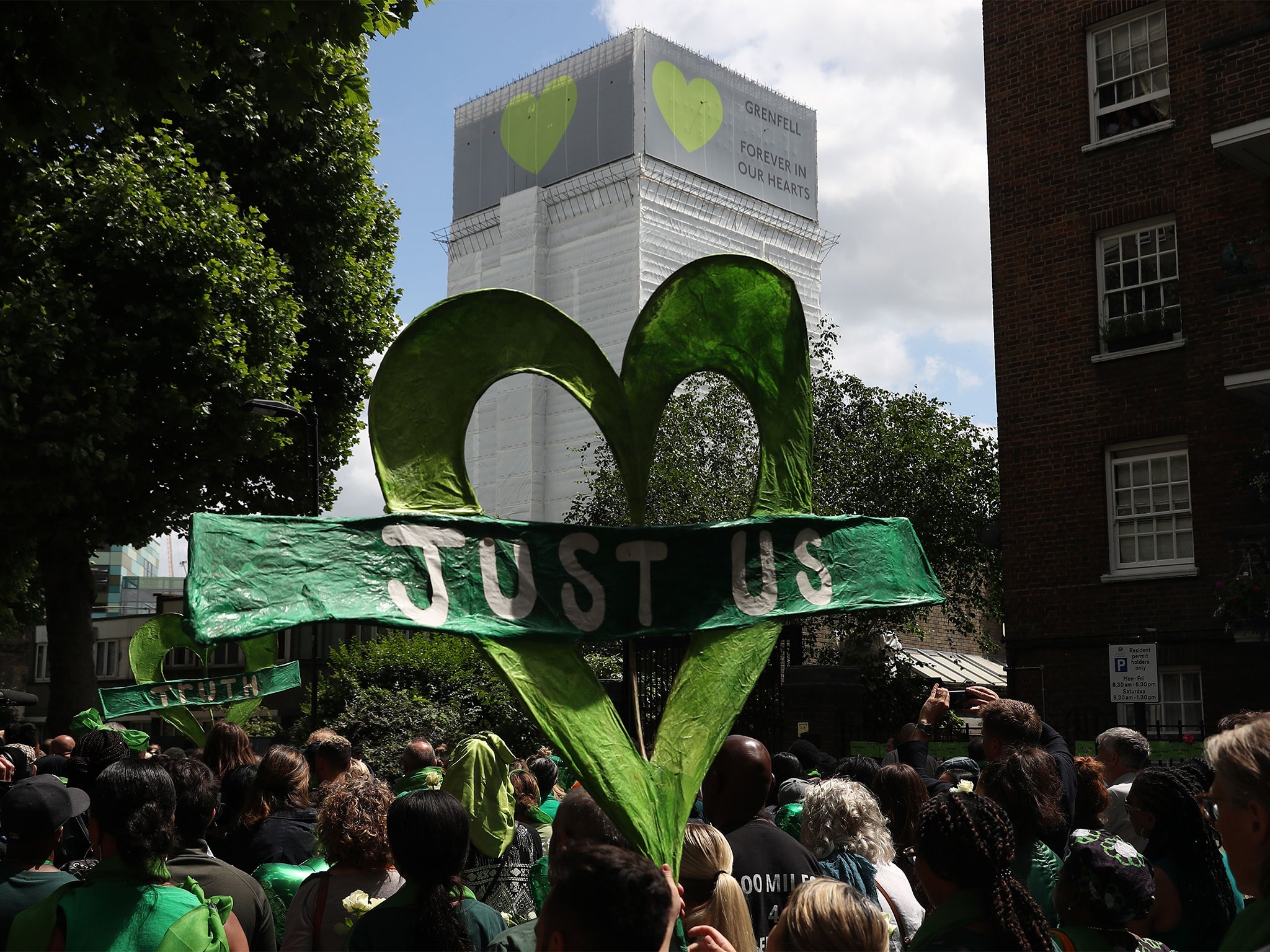Theresa May has some nerve lighting up Downing Street for Grenfell as if it weren't a manmade disaster
Grenfell Tower's cremated shell, somehow still standing but barely clinging together, is perhaps the strongest and most brutal metaphor for neoliberalism that exists


A year ago today flames ravaged through Grenfell Tower, killing 72 people; today buildings across the UK will be illuminated in green light to remember those who died. While it is important to remember those who died and learn lessons from this awful moment in the UK’s history, the decision to illuminate 10 Downing Street in particular is deeply inappropriate.
Grenfell was a disaster that was waiting to happen. It wasn’t a tsunami, an earthquake or even a terrorist attack. It was a human-made disaster created by a prioritisation of profit over safety and, by extension, human life.
Everything about Grenfell, from decisions that caused it to the actions of local and national politicians in its aftermath, is political. Its cremated shell, somehow still standing but barely clinging together, is perhaps the strongest and most brutal metaphor for neoliberalism that exists.
To attempt to depoliticise Grenfell, or paint it as a freak accident that we all share equal responsibility for and therefore have the same right to mourn, is an insulting and dangerous strategy.
In the aftermath of the fire, Theresa May did not meet residents on her first visit to the site – a decision she now says she deeply regrets. The Conservative-majority council in Kensington and Chelsea cancelled meetings after the High Court ruled that journalists must be allowed to attend, as if they were afraid of full transparency. Just as their concerns weren’t acknowledged before the fire, Grenfell’s survivors were shut out of council meetings to avoid any “disruption”.
It took a staggering six months for Robert Black, the housing boss in charge of running Grenfell Tower, to quit his post as CEO of Kensington and Chelsea Tenant Management Organisation. Time and time again, Grenfell’s survivors were let down.
Today more than 70 families affected by the blaze remain in temporary accommodation – that’s more than half of those who survived. As hundreds of council-owned homes lie empty in the same borough where the tragedy happened, residents have been offered unsuitable accommodation and now many report that they live in “rabbit hutch” properties miles away from where they used to live. Just like the fire itself, this is shameful, but also avoidable.
With this in mind, Downing Street has some nerve turning itself green.
Today the incinerated shell of Grenfell ominously overlooks its surroundings. A dark, empty grave of not just those who died, but the dreams, loves and histories that were contained within its walls. Despite the heroic efforts of the emergency services, these people had been allowed to die in a manmade oven for the sake of aesthetics in one of London’s richest boroughs.
We learned that the safety concerns of residents, hauntingly available on a Facebook group, were repeatedly “brushed aside” by those in power. This confronted us with the reality that some lives are viewed as less important than others by those in positions of influence. Grenfell’s residents, along with those residing in similar tower blocks across the UK, weren’t deemed worthy of the maintenance or regulations that would have saved their lives.
Learning the lessons of Grenfell, of which there are many, is a far more fitting tribute to those who died and the people left behind. Remembering that the every life shattered by Grenfell is a direct consequence of a string of irresponsible political decisions would be a great place to start. Lighting up Downing Street in solidarity – as if there could be any between the people who made the decisions and the people who had to live with the consequences of them – is not.
Join our commenting forum
Join thought-provoking conversations, follow other Independent readers and see their replies
Comments
Bookmark popover
Removed from bookmarks